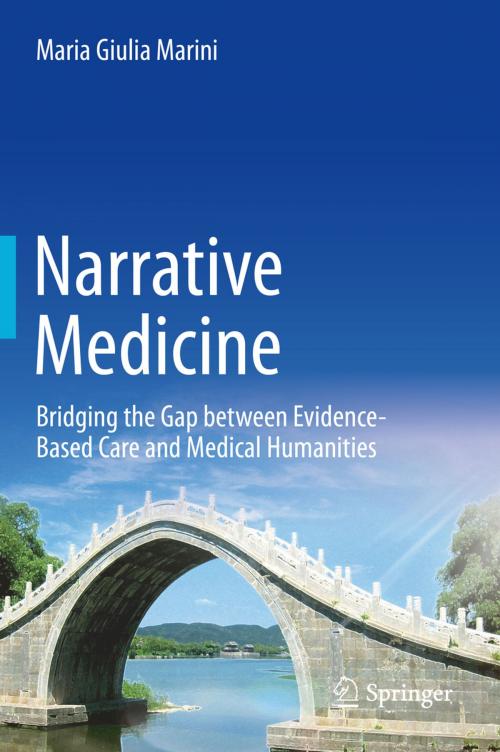Narrative Medicine
Bridging the Gap between Evidence-Based Care and Medical Humanities
Nonfiction, Health & Well Being, Medical, Specialties, Preventive Medicine, Reference, Public Health| Author: | Maria Giulia Marini | ISBN: | 9783319220901 |
| Publisher: | Springer International Publishing | Publication: | September 29, 2015 |
| Imprint: | Springer | Language: | English |
| Author: | Maria Giulia Marini |
| ISBN: | 9783319220901 |
| Publisher: | Springer International Publishing |
| Publication: | September 29, 2015 |
| Imprint: | Springer |
| Language: | English |
This book examines all aspects of narrative medicine and its value in ensuring that, in an age of evidence-based medicine defined by clinical trials, numbers, and probabilities, clinical science is firmly embedded in the medical humanities in order to foster the understanding of clinical cases and the delivery of excellent patient care. The medical humanities address what happens to us when we are affected by a disease and narrative medicine is an interdisciplinary approach that emphasizes the importance of patient narratives in bridging various divides, including those between health care professionals and patients. The book covers the genesis of the medical humanities and of narrative medicine and explores all aspects of their role in improving healthcare. It describes how narrative medicine is therapeutic for the patient, enhances the patient–doctor relationship, and allows the identification, via patients' stories, of the feelings and experiences that are characteristic for each disease. Furthermore, it explains how to use narrative medicine as a real scientific tool. Narrative Medicine will be of value for all caregivers: physicians, nurses, healthcare managers, psychotherapists, counselors, and social workers.
“Maria Giulia Marini takes a unique and innovative approach to narrative medicine. She sees it as offering a bridge – indeed a variety of different bridges – between clinical care and ‘humanitas’. With a sensitive use of mythology, literature and metaphor on the one hand, and scientific studies on the other, she shows how the guiding concept of narrative might bring together the fragmented parts of the medical enterprise”.
John Launer, Honorary Consultant, Tavistock Clinic, London UK
This book examines all aspects of narrative medicine and its value in ensuring that, in an age of evidence-based medicine defined by clinical trials, numbers, and probabilities, clinical science is firmly embedded in the medical humanities in order to foster the understanding of clinical cases and the delivery of excellent patient care. The medical humanities address what happens to us when we are affected by a disease and narrative medicine is an interdisciplinary approach that emphasizes the importance of patient narratives in bridging various divides, including those between health care professionals and patients. The book covers the genesis of the medical humanities and of narrative medicine and explores all aspects of their role in improving healthcare. It describes how narrative medicine is therapeutic for the patient, enhances the patient–doctor relationship, and allows the identification, via patients' stories, of the feelings and experiences that are characteristic for each disease. Furthermore, it explains how to use narrative medicine as a real scientific tool. Narrative Medicine will be of value for all caregivers: physicians, nurses, healthcare managers, psychotherapists, counselors, and social workers.
“Maria Giulia Marini takes a unique and innovative approach to narrative medicine. She sees it as offering a bridge – indeed a variety of different bridges – between clinical care and ‘humanitas’. With a sensitive use of mythology, literature and metaphor on the one hand, and scientific studies on the other, she shows how the guiding concept of narrative might bring together the fragmented parts of the medical enterprise”.
John Launer, Honorary Consultant, Tavistock Clinic, London UK















